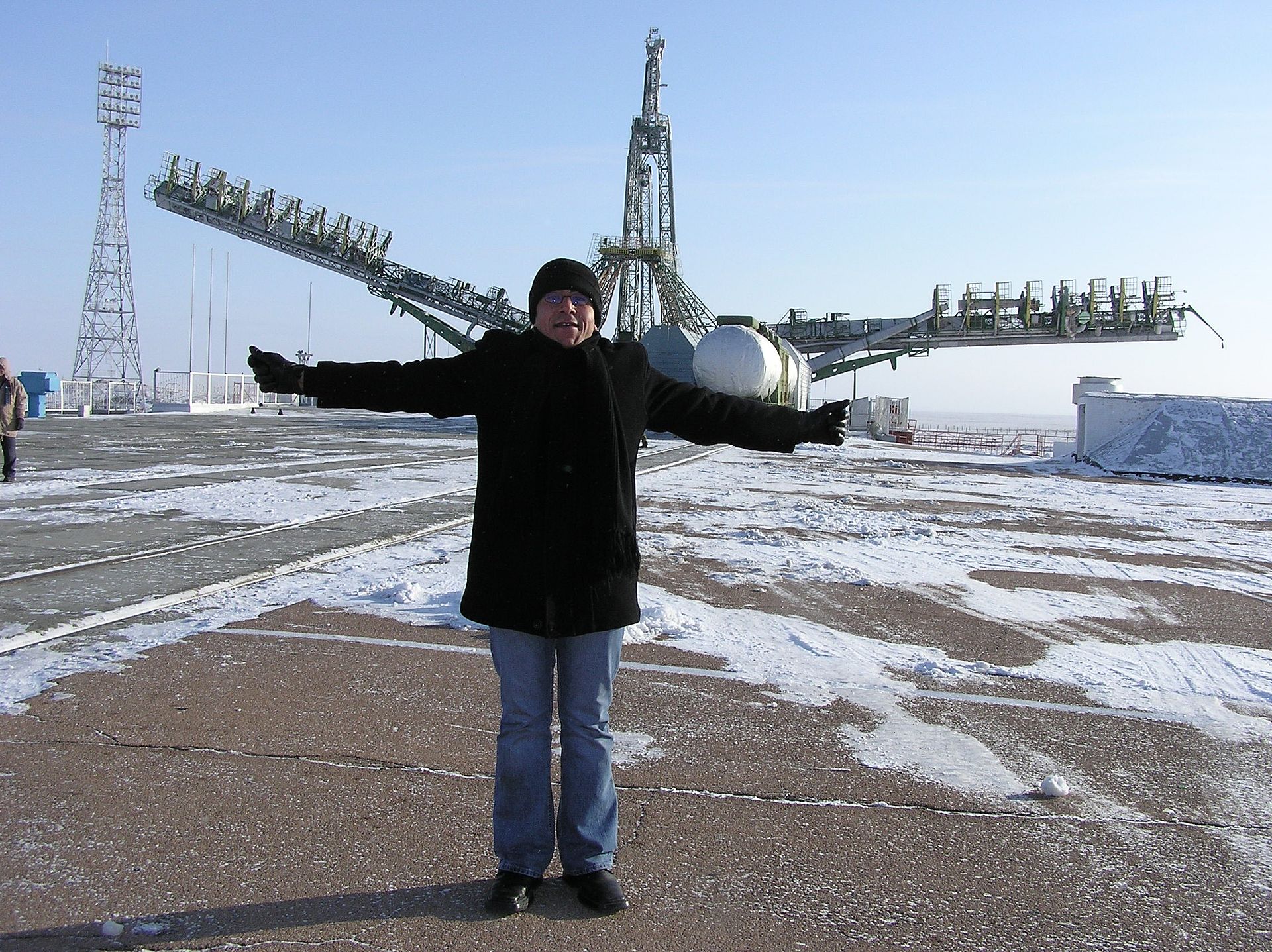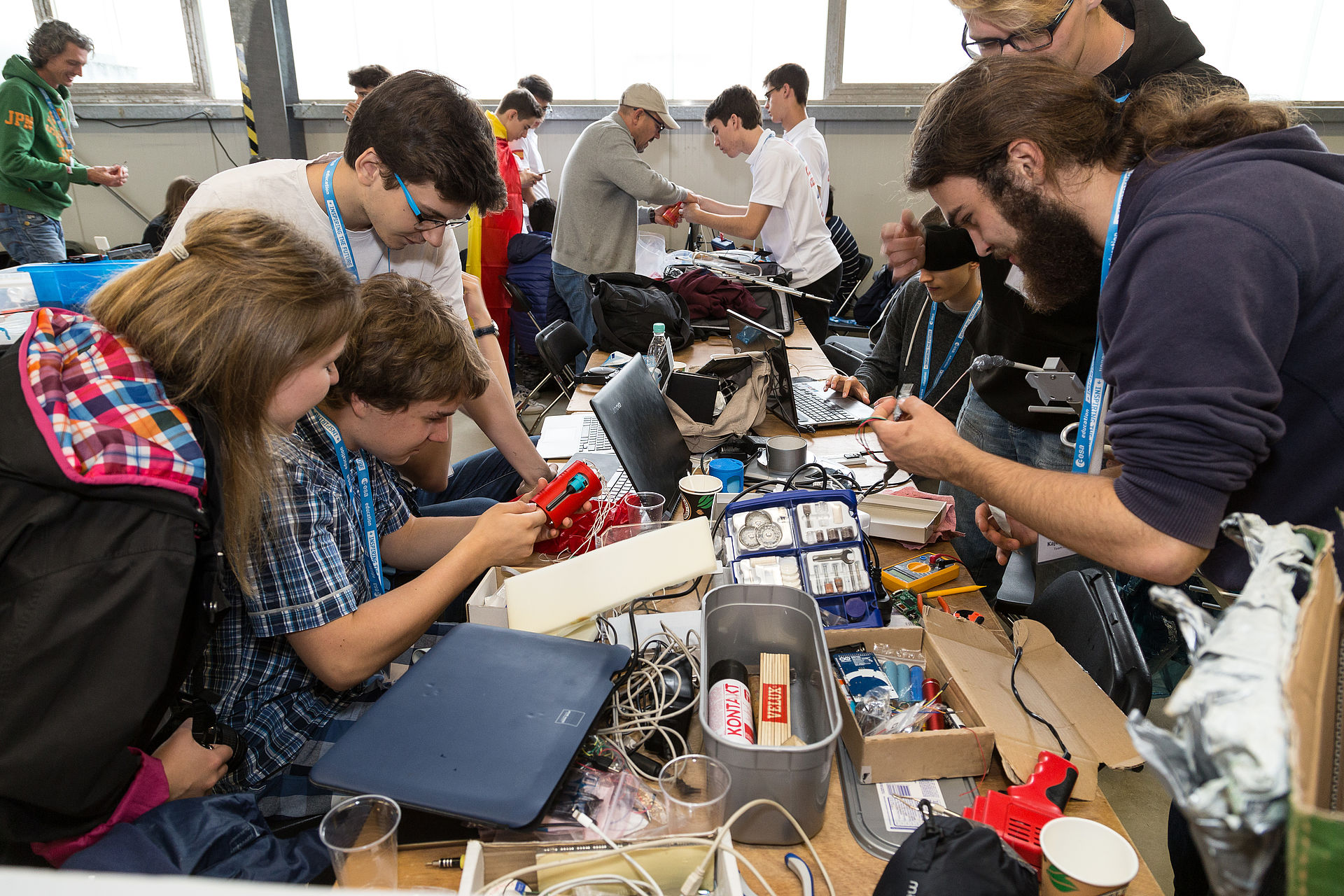Become a space pioneer by joining European space company OHB
FULL INFORMATION FOR GRADUATES, EXPERIENCED SPECIALISTS AND SCHOOL LEAVERS ABOUT CAREERS AND JOBS IN THE AVIATION AND SPACE INDUSTRY
A career in space does not have to be a dream. OHB is constantly looking for new pioneers around the entire world and in all corporate segments. In our series We.OHB, our space pioneers tell about their very personal impressions of their dream "space job".
INGENUITY AND PROFESSIONALISM - HOW TO BECOME A SPACE PIONEER
“To boldly go where no man has gone before!” – This famous sentence from the lead-in to the TV series “Star Trek” was a purely utopian vision back in the 1960s, writing TV history. What was once science fiction has long since become science as space exploration is no longer fiction. But where does a career in space actually begin?
Work students and interns: we look forward to welcoming you!
Your first “date” with the exciting world of New Space: no candle light, no flowers. Instead, flexible processes and work with the major space agencies ESA and NASA. We particularly offer internships for testing components and finished equipment to ensure that they function properly and reliably. We are particularly pleased if we are able to assist students with their final theses for their university courses. We attach particular importance to hands-on, constructive and intensive support for research studies. Interns and work students are integrated in our activities right from the start, becoming an important part of their teams rather than tagging along in large and rigid structures.
When the daily routine is anything but routine – accompanying Hubert Moser to New Space
“Engineers work in many exciting areas of industry and are, of course, at the cutting edge of all new developments,” says Hubert Moser, Triton-X project manager at LuxSpace. Moser had always been interested in space, the moon and the stars and studied aviation and space engineering in Stuttgart, specializing in combustion technology and space flight. He came to LuxSpace for his thesis and remained there after graduating. At that time, LuxSpace was a small company with around twenty employees.
“It was like working out of a garage. This pioneering spirit was precisely what I was after.”
What he found so appealing was the fact that he was involved in work on entire projects from the outset rather than merely working in individual parts of a large project. “I had the great fortune of being able to gain practical experience and to work on exciting new projects in this small company,” says Moser. Initially, he worked on telecommunications satellites for a large company operating a satellite-based data communications network for transmitting text messages to and from any position on the earth. After that, LuxSpace commenced a large project with ESA aimed at developing inexpensive microsatellites. Today, Hubert Moser is Triton-X project manager at LuxSpace. “That is typical of OHB,” says Marion Scott, head of HR Policies and HR Controlling. “With our flat hierarchical structures, employees are able to achieve things far more quickly. The individual employee holds greater responsibility.”
OHB HAS REMAINED A FAMILY-RUN COMPANY DRIVEN BY A PIONEERING SPIRIT.
Space flight never ceases to fascinate us. We have never lost our pioneering spirit and continue to do things each day that we have never done before. Indeed, no one before us has done some of these things. That’s why we need fresh and bold pioneers and are proud of each of our employees. OHB is still a family-run company. Admittedly, a large company but still a family-run one which has preserved its independence and momentum. Above all else, working at OHB means working in teams: we enter new worlds together, putting the future of space into reality in multidisciplinary and international teams. We have not lost our fascination for space. Indeed, if anything it has grown stronger. But this does not mean that we have become rigid. Other companies envy us this spirit.
Working for OHB – pioneers of space
The transition from university to the career world marks a radical change in your daily routine. New challenges, new faces, new requirements – no matter what you ultimately end up doing after graduating, you’re in for a lot of changes. Above all else, working at OHB means that all avenues are open for you. After listening to lectures just a few months ago, you may possibly now find yourself working on propulsion modules which will be used in space in the future. And after heating a packet of instant noodles just recently, you may now find yourself talking to colleagues from Sweden in the canteen about the new heat shield for the Meteosat Third Generation MTG weather satellites. And after learning formulae by heart just a year ago, you may now find yourself entering the office, donning a protective uniform, a cap and covers for your shoes to work in the clean room.
At OHB, graduates work in international and multidisciplinary teams on testing procedures, new components and satellite assembly. OHB is looking for new employees willing to assume responsibility. This is one of the big trump cards in this industry: so much is genuinely new. The sense of change can be felt in teams, at conferences, in the canteen. The pioneers of space are opening a new era – and this also applies to OHB. OHB has flat and open hierarchies, so if you are willing to make an active contribution, you can be placed in charge of a team of young and enthusiastic engineers more quickly than elsewhere. The launch of an Ariane 6, on which you have worked, the signature of your own satellite in orbit - this is not a vision but part of your daily routine at OHB. OHB has grown over time, becoming more international in the process. Yet, space flight is still pioneer work, requiring visions, agility and a “hands-on” approach. We are proud of pursuing our pioneering work with the same passion as we had at the beginning of our journey.
SYSTEMATIC APPROACH TO NURTURING NEW TALENT
We work with universities
Processed-based thinking is important for complex systems. So, it is only logical that we are committed to developing young talent. Back in 2012, OHB sponsored a professorship at the Center for Applied Space Technology and Microgravity (ZARM). The research activities performed there focus on the development of space-enabled technologies for implementing current and future space missions. Prof. Dr. Claus Braxmaier also assists with the satellite missions of the German Aerospace Center (DLR).
In 2015, OHB again funded a (junior) professorship at the University of the Armed Forces in Munich in the area of secure space communications, aimed at making satellite communications as secure as possible. In this connection, we repeatedly try to incorporate elements aimed at increasing the practical relevance of the course.
Cansat – taking space technology into the classroom
The German CanSat competition gives interested school students from all over Germany an opportunity of exploring the technical challenges posed by a space mission. Working in a team, they receive a unique chance to develop a fully functional mini satellite. Although it only has the size of a beverage can, the small-scale research satellite is launched on board a rocket and propelled to a height of 1,000 meters, where it is activated, just like in a real space mission. With their independently developed payload, the winning team qualify for entry in the ensuing Europe-wide competition. This team will be taking part as the current German title-holder. CanSat allows young people to work on a complete space project on a hands-on basis outside the classroom. Normally abstract mathematical and physical knowledge is applied as the teams do not only develop the idea for the scientific function of the satellite but also assume independent responsibility for designing the components and integrating them in the CanSat module. In addition, they develop a parachute system to recover the payload. The climax of the competition is the launch of their own satellites on board a rocket at the Rotenburg Wümme airfield.
OHB has been supporting the project together with many other institutional and industrial co-organizers and sponsors since the first German CanSat competition in 2014.
Looking ahead over the next few years, one objective will be to interest more women in the exciting and interesting career opportunities awaiting them in aviation and space engineering, a sector which is still heavily dominated by men, and to encourage more girls and women to embark on a technical career. In this respect, the now traditional “Girls’ Day”, which the Group organizes, merely marks the beginning of a whole series of activities and measures aimed at arousing women’s interest in a career in this industry. We will continue to step up our partnerships with universities and colleges as well as other tertiary education institutions.
Erasmus Plus – aviation and space engineering is international
Under the European Erasmus Plus project, an international conference attended by school students from Scotland, Sweden and the Netherlands was held in December 2015 at the Waldschule school in Schwanewede near Bremen. The purpose of this exchange program was to provide school students with an insight into career openings available at international companies. From the outset, the school students were required to work in international, multilingual teams to prepare the project, this being a crucial skill in day-to-day work for an company at which employees from different countries work together on shared projects. The project seeks to encourage cooperation between schools and companies and to teach school students the practical skills that they will need in their future careers. Guided tours of OHB gave the school students an insight into how the space industry is structured and functions as well as the training and career opportunities it offers. To prepare for the project, a task force was established at all the participating schools to give the students of the partner schools an opportunity of finding out more about the space industry in Europe as a whole and in their own country. Two students from the Waldschule school paid advance visits to the participating companies to find out more. Small groups each comprising eight school students then toured the companies. Subsequently they presented the companies to the other participants as experts. Further meetings were held in the Netherlands and Scotland in October 2016 and March 2017. The project was concluded in May and June 2017 with job fairs at all four schools attended by representatives of the partner companies.









